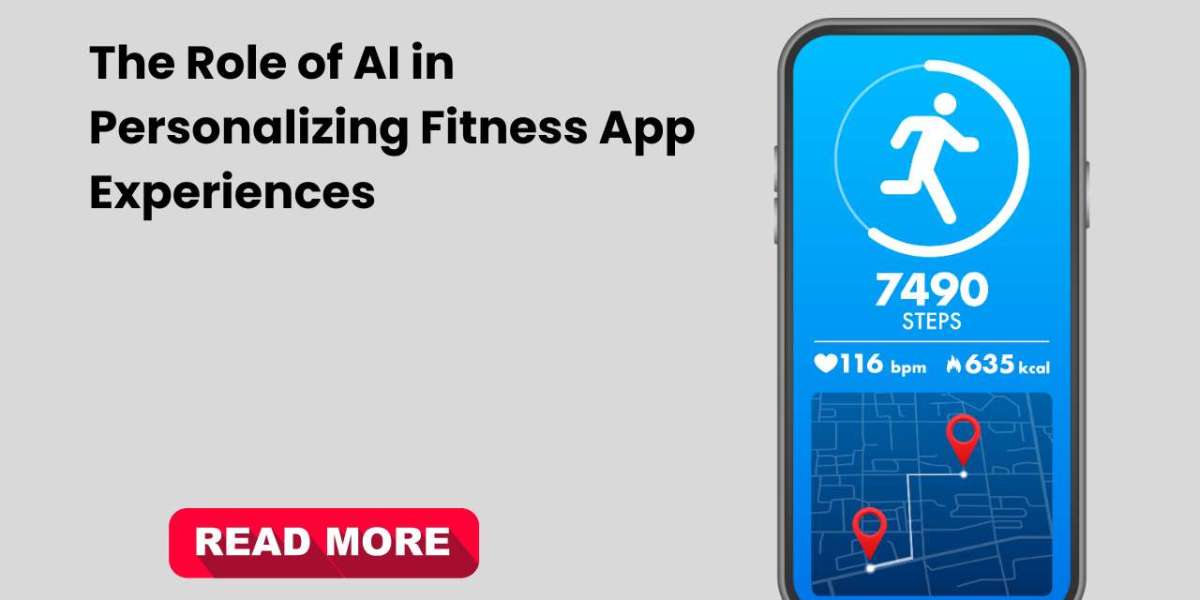Over the last few years, AI or Artificial Intelligence has changed how we interact with technology. AI is one of the most interesting ways to customize experiences in fitness apps. Gone are the days of tracking workouts through rudimentary spreadsheet templates; fitness app development powered by Ai can adjust to individual needs, preferences, and goals. This tailored method revolutionizes the fitness ecosystem, rendering training sessions more impactful, enjoyable, and enduring.
How AI is Changing the Fitness App Experience
Fitness apps used to be a one-size-fits-all approach. If you were a beginner or an advanced athlete, the app provided the same exercises, meal plans and tracking systems. But as AI tech has developed, so, too, has the capacity of these apps to put a more personal spin on what they offer. Artificial intelligence has created features that customize a user’s experience based on their physical abilities, progress, preferences and even dynamics in their environment.
Personalized Workout Plans Using AI
The most significant way to meet fitness app personalization is by creating a unique training plan,” For example, AI algorithms process data inputs like age, fitness level, workout history, and even daily activity patterns to suggest exercises tailored to users’ needs. When users work out, AI constantly modifies their training program as they progress towards a goal, ensuring the training program is sufficiently challenging but not overwhelming.
For instance, if a user consistently finishes his or her workouts easily, the AI will raise the intensity or vary the routine to prevent a fitness plateau from occurring. On the other hand, if a user finds it difficult to do some exercises, the AI could adapt the plan by lowering the difficulty or offering other exercises.
AI in Diet and Nutrition Recommendations
Another domain where AI is having a monumental influence is diet and nutrition tracking. AI-powered fitness apps can provide personalized meal planning specific to a user’s fitness objectives, like weight loss, muscle gain , or enhancing endurance. AI considers personal dietary likes & dislikes, restrictions (like vegetarian or gluten-free), and health issues (like diabetes) to suggest appropriate meals.
Additionally, by connecting to wearable devices or smartphones, AI could monitor the user's dietary habits. For example, users may scan barcodes, input details about the food, or even photograph their meals, with the AI analyzing nutritional content at the moment. This advanced level of tracking personalized nutrition helps users establish their goals and adopt healthier eating habits by providing insights into their choices based on data.
Behavioral Insights and Motivation
AI also plays a key role in understanding user behavior and offering motivation. It can look at data such as how often the user uses the app, how often they work out, and how close they are to reaching their goals to see when some motivation might be dwindling. For instance, if a user has been missing workouts or not logging their food, the AI can send reminders or motivational messages to help get them back on track.
In fact, AI can provide positive reinforcement by rewarding milestones—like finishing a challenging workout or reaching a new personal best. It can even customize rewards, like digital badges or progress graphs, to make it feel more rewarding and engaging.
AI-Powered Virtual Coaches and Trainers
Virtual trainers and coaches aided by AI are game changers in fitness applications. Intelligent systems are able to simulate individual training sessions with a trainer with real-time feedback as well as corrections during exercises. For example, if a person is doing an exercise improperly, then the AI will provide instructions for correcting the error, such as changing posture or technique.
Alongside providing guidance regarding exercise methods, AI-powered virtual coaches also keep track of the user's progress over time and recommend improvements. This will ensure that the user stays on track to reach the fitness objectives they want without worrying about a mistake in the way they exercise or their choice of exercise.
Enhances User Engagement through Flexible Features
AI's capacity to adapt to the needs of each user leads to more engagement. Personalized features such as customizable durations of workouts, preferred exercise kinds, and difficulty levels improve satisfaction among users. For instance, for example, a runner might prefer to view only workouts that are related to running, or someone who is looking to build strength might prefer to concentrate on exercises for weight lifting. AI can adjust the content shown based on their preferences.
Additionally, AI is able to adapt to the changing conditions of the surrounding environment. If the application detects that a user is traveling or is in a space that is not suitable for exercise, it will adjust the workout suggestions to meet the conditions. For instance, it can recommend bodyweight exercises that could be performed in a hotel space rather than gym-based exercises that require equipment.
Predicting and Preventing Injuries
AI plays an important role in preventing injuries. Through the analysis of user data, such as the patterns of movement as well as workout intensity and recovery time, AI can identify the signs of overtraining or poor methods that could cause injuries. The app will then offer suggestions for stretching, rest, or adjustments to exercises to decrease the chance of injury.
Advanced AI systems also integrate knowledge of physical therapy and sports science to make sure that athletes exercise in a manner that is less prone to injury to joints or strain. A high level of detection and prevention means that athletes are able to continue their fitness journey in a safe and sustainable manner.
Conclusion
AI's function in personalizing fitness app experiences is only beginning, and the future is extremely promising. When AI advances, and technology continues to improve, it is possible to expect more sophisticated features, including predictive analytics that can anticipate user preferences, more interaction with devices that wear monitors, and even more accurate monitoring of health.
The end result is that AI-powered fitness app development company are shifting the focus away from general routines to personalized programs that are able to adapt to the user's preferences, progress, and goals. Personalization isn't just increasing the enjoyment of exercise but also helping users remain motivated, meet their fitness goals, and, most importantly, live healthier lives. AI's capability to give real-time feedback and motivation, as well as customized programs and fitness apps, is now more than just a tool for tracking. They become personal trainers in the palm of your hands.


